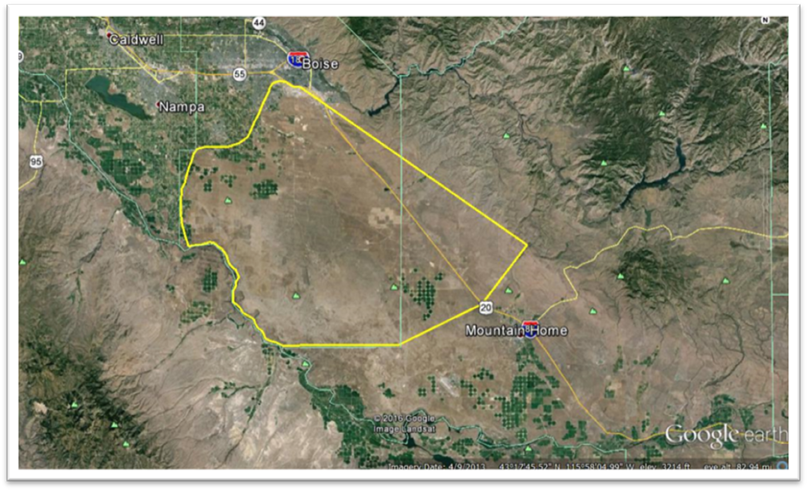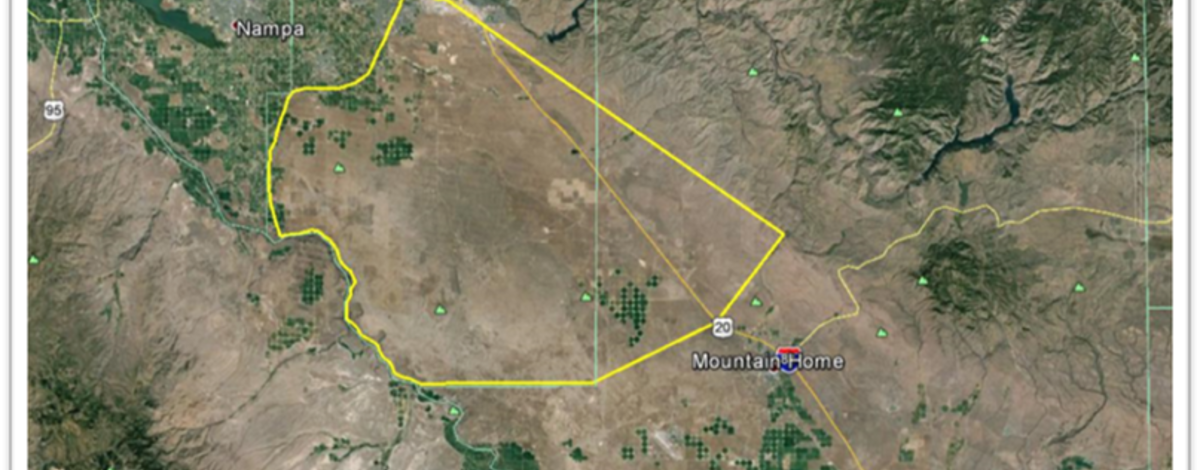Laboratory tests indicate an Elmore County cat likely died from plague. The cat had contact with ground squirrels, also known as “whistle pigs,” before becoming ill. Family members and other household pets are being monitored to ensure the cat did not spread the infection.
The cat lived outside of the initial area of impact identified in the May 27 press release about plague in ground squirrels; the cat resided approximately three miles west of the City of Mountain Home. Given the positive initial tests for plague in the cat, the area of impact has been expanded eastward into Elmore County (see enclosed map). People living or recreating in the area should take precautions.
Plague is transmitted through the bites of infected fleas and can cause serious illness to people and pets if not treated quickly. It also can be transmitted to people by direct contact with infected animals, including rodents, rabbits and pets. Common rodents that can become infected include ground squirrels, rats, voles and mice. Tree squirrels in Idaho are not known to carry plague.
“This is a reminder that whether you live in the area of impact or recreate there, it is very important to take precautions to avoid contact with ground squirrels and their potentially infected fleas. Make sure your pets have proper flea control. Do not let your pets touch ground squirrels in the affected area. People can be exposed to plague when pets bring infected fleas back into the home, by caring for a sick pet without proper precautions, or by contact with rodents carrying fleas,” said Sarah Correll, Epidemiologist for Central District Health Department.
Earlier this week, official lab tests confirmed plague infection in ground squirrel die-offs found in desert areas south of Boise and west of Mountain Home.
To prevent plague, health officials recommend:
- See your doctor about any unexplained illness with a severe fever if you have been in the affected area.
- Avoid picking up or touching dead animals; wear gloves if you must handle dead animals
- Do not let pets sleep in bed with you. This has been shown to increase your risk of getting plague.
- Do not let your pets hunt or roam in the affected area.
- Talk to your veterinarian about using an appropriate flea control product on your pets.
- Clean up areas near the house where rodents could live, such as woodpiles, brush piles, junk and abandoned vehicles.
- Sick pets should be examined promptly by a veterinarian.
- Put hay, wood, and compost piles as far as possible from your home.
- Don’t leave your pet’s food and water where rodents can get to it.
If you enter the identified area of impact, take the proper precautions:
- Wear long-sleeved shirts and long pants.
- Use DEET on clothing in accordance with label instructions or wear clothing pre-treated with permethrin.
- Use DEET on exposed skin, in accordance with label instructions.
Symptoms of Plague
Symptoms of plague in humans include sudden onset of fever, chills, headache, and weakness. In most cases there is a painful swelling of the lymph node in the groin, armpit or neck areas. Plague symptoms in cats and dogs are fever, lethargy and loss of appetite. There may be a swelling in the lymph node under the jaw. With prompt diagnosis and appropriate antibiotic treatment, the fatality rate in people and pets can be greatly reduced. Physicians who suspect plague should promptly report it to their local public health district.
Background
In late May, the Idaho Department of Fish and Game collected dead ground squirrels from several areas in Ada County and submitted them to public health laboratories for testing. The laboratory found the plague bacterium. Ground squirrel populations with plague can experience high mortality, sometimes evidenced by large numbers of carcasses. At this time, plague has been detected in ground squirrels — not tree squirrels.
Plague activity can increase in the spring and summer months when rodents are more active. However, wildlife experts say ground squirrels begin hibernating in late June/early July, at which time the threat of plague will decrease.
For more information on plague, or to report a rodent die-off of five or more animals, visit https://idfg.idaho.gov/plague.
Additional resources can be found here:
§ General overview: www.cdc.gov/plague/
§ FAQs: www.cdc.gov/plague/faq/index.html
§ Protect Yourself From Plague fact sheet
§ Idaho Department of Fish and Game: fishandgame.idaho.gov

Area of impact where plague has been identified in ground squirrels
Updated 6/3/2016

